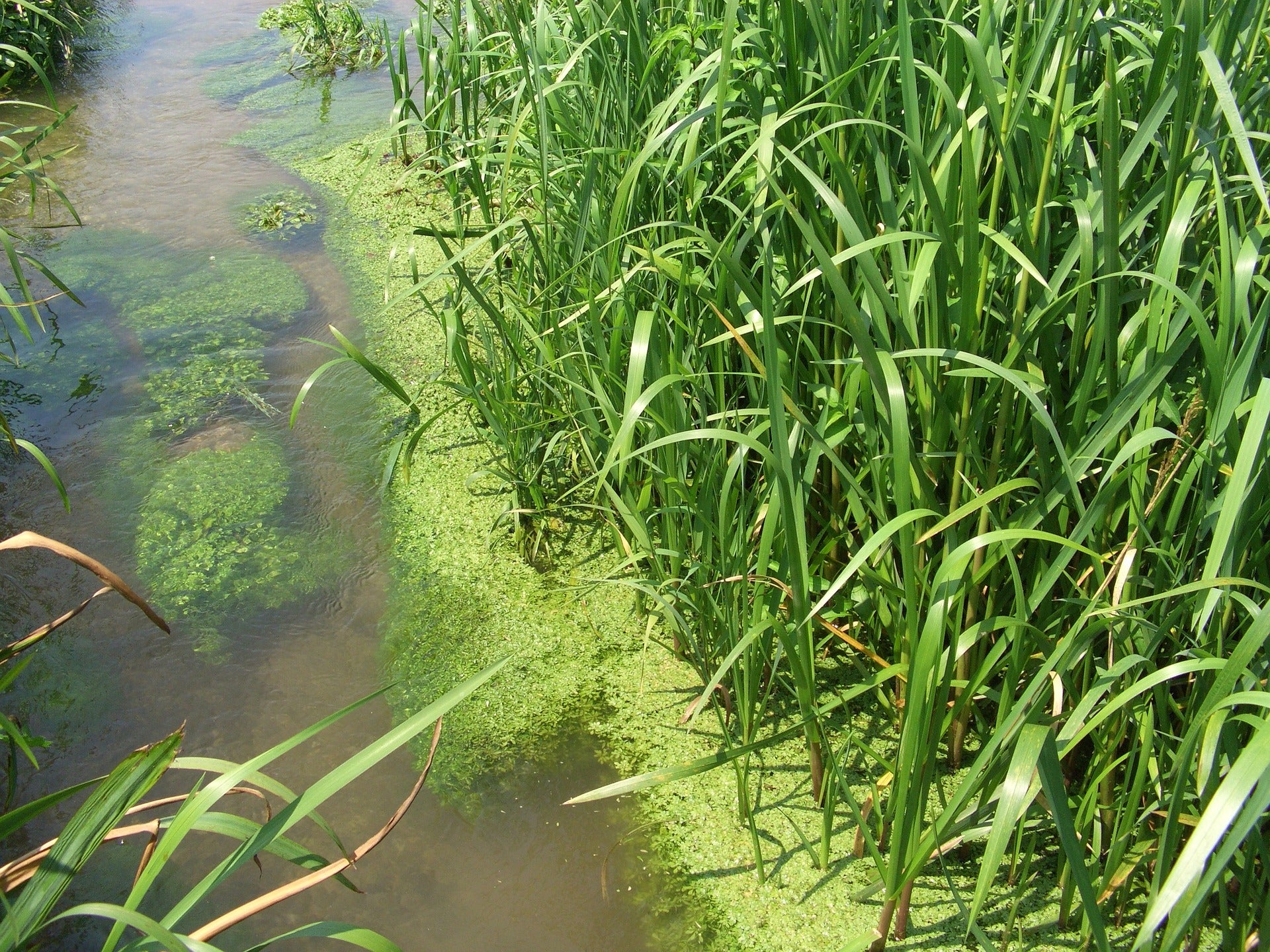Article: Dealing with Algae

Dealing with Algae
Adding a commercial lake to an area brings a special element to an otherwise barren landscape. It makes commercial properties more finished and sophisticated. It makes places like golf courses or large lawns look elegant and well-maintained. Lakes definitely add a high-end feel to outdoor spaces.If you have an algae problem in your lake, these benefits are immediately diminished—to the point where having the lake may do more harm than good. Lake management includes addressing and controlling algae outbreaks.
Why Algae is a Problem
Algae is obviously a problem for aesthetic reasons, but it can be a problem for the health of your lake as well. It is especially problematic in warmer weather. This means algae can be worse in areas where the weather is relatively warm year-round, like Florida. So it is necessary to perform lake management activities where the weather is relatively warmer.
Aquatic plants are a great source of food and oxygen for fish and lake wildlife. Too many algae can be unsightly and cause unpleasant odors as it chokes off the oxygen in the lake. Algae produces oxygen during the day with the use of sunlight, but that production stops at night. Yet, algae still use oxygen at night, basically stealing the oxygen for its own use rather than benefiting the lake. To make the problem even worse, when large portions of algae die, they use more oxygen, causing further harm.
Controlling Algae in Your Lake
The best way to address an algae problem is to prevent it from occurring in the first place. There are many ways that you can control algae in your lake, including the suggests as outlined below.
- Barley straw helps prevent the growth of algae, without killing existing algae by releasing a chemical as it decays that prevents algae growth.
- This type of treatment will prevent algae from building up and spreading. It is applied directly to the water and sometimes it can be used in irrigation systems as well. Be sure to find a variety that is safe for the plant and animal life in your lake.
- An aerator provides more oxygen to the water. While it may not prevent algae, it will help your lake stay healthy by providing extra oxygen to it. It can be especially helpful if you are using it while also treating the water with chemicals to treat the existing algae.
- Certain fish actually feed on algae, so incorporating them into your lake may be an easy way to keep algae under control. Be sure that you maintain your lake in a way that will also be healthy for the fish, as well as the plant life.
Lake Management
Lakes require a variety of treatments and care to maintain a polished and professional look. Many pond products are not designed for use on larger bodies of water, like a commercial lake. Instead, look for specifically made lake management products that can help you with your algae problems.

